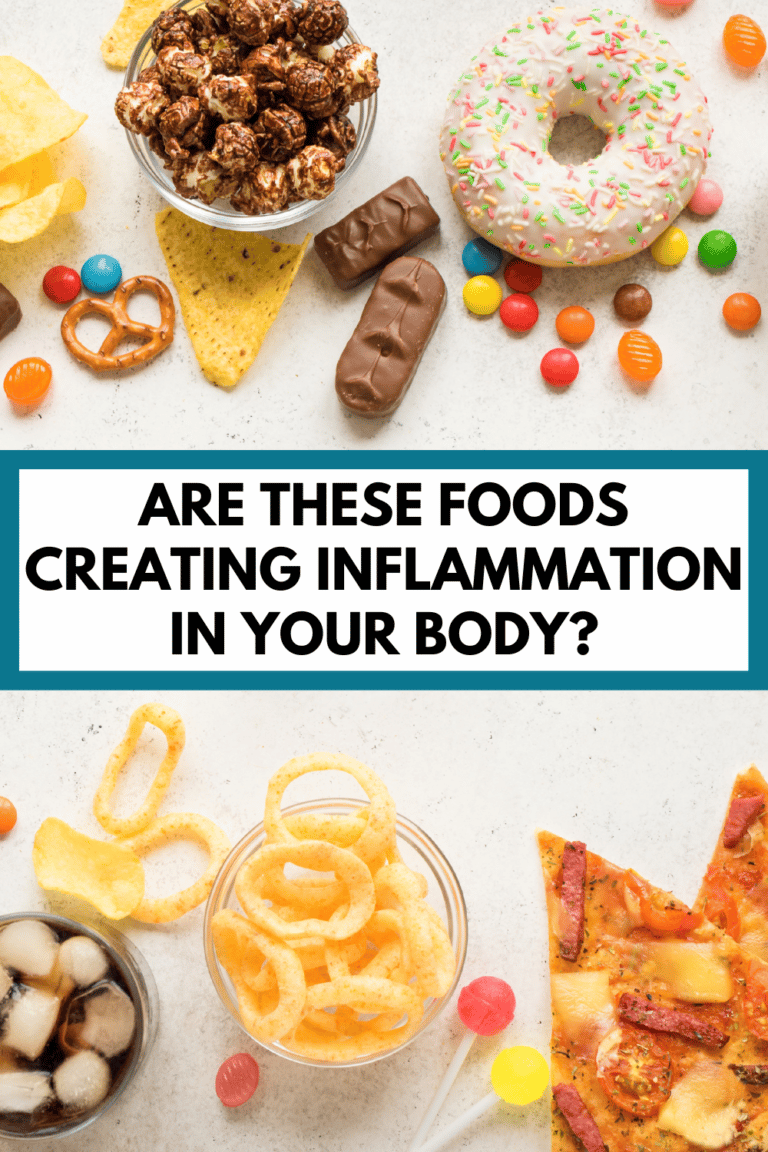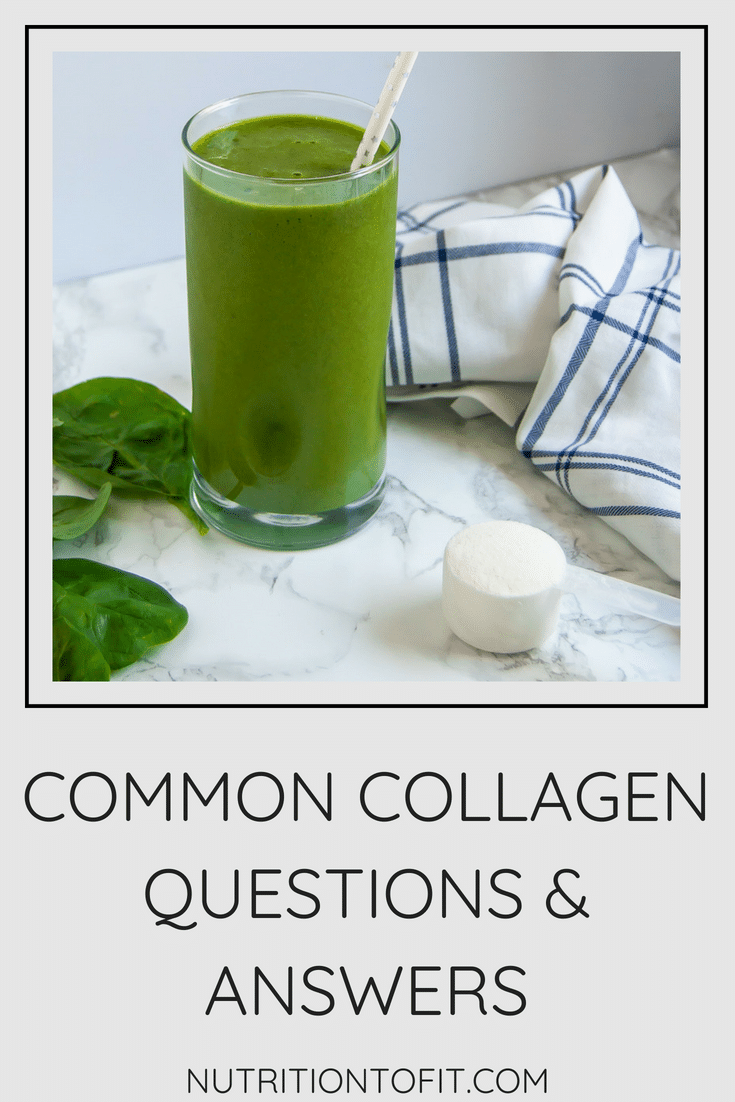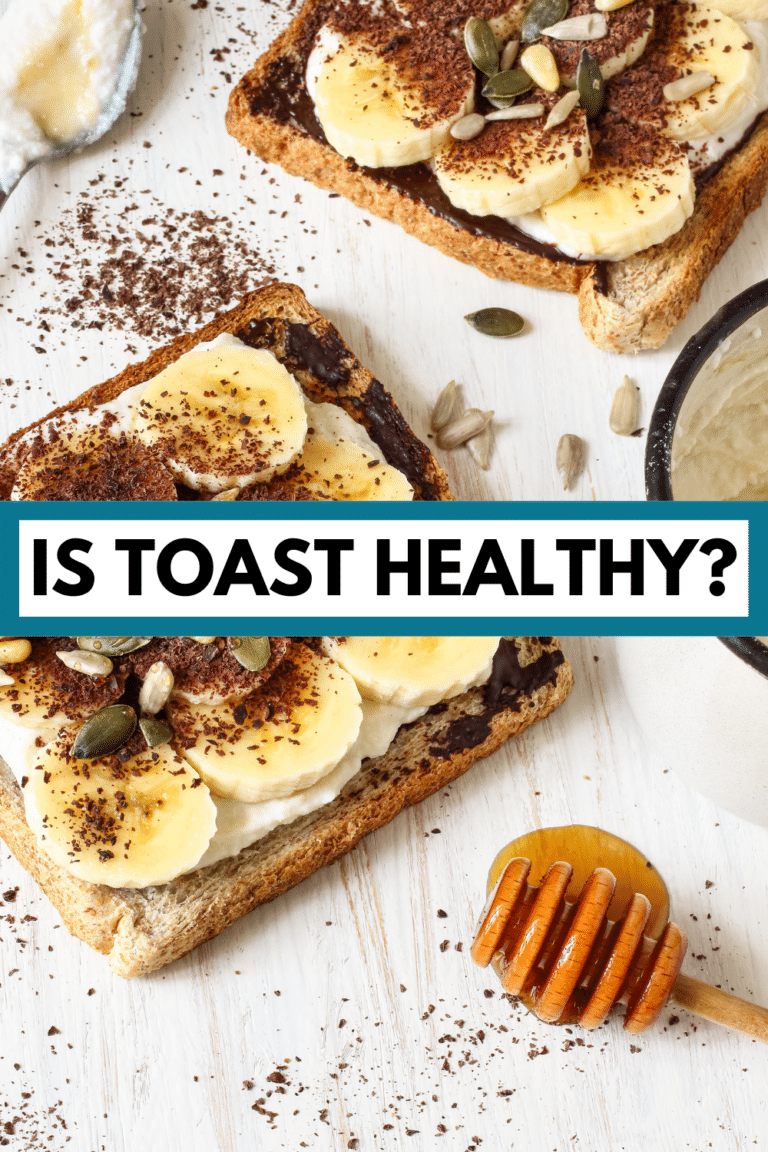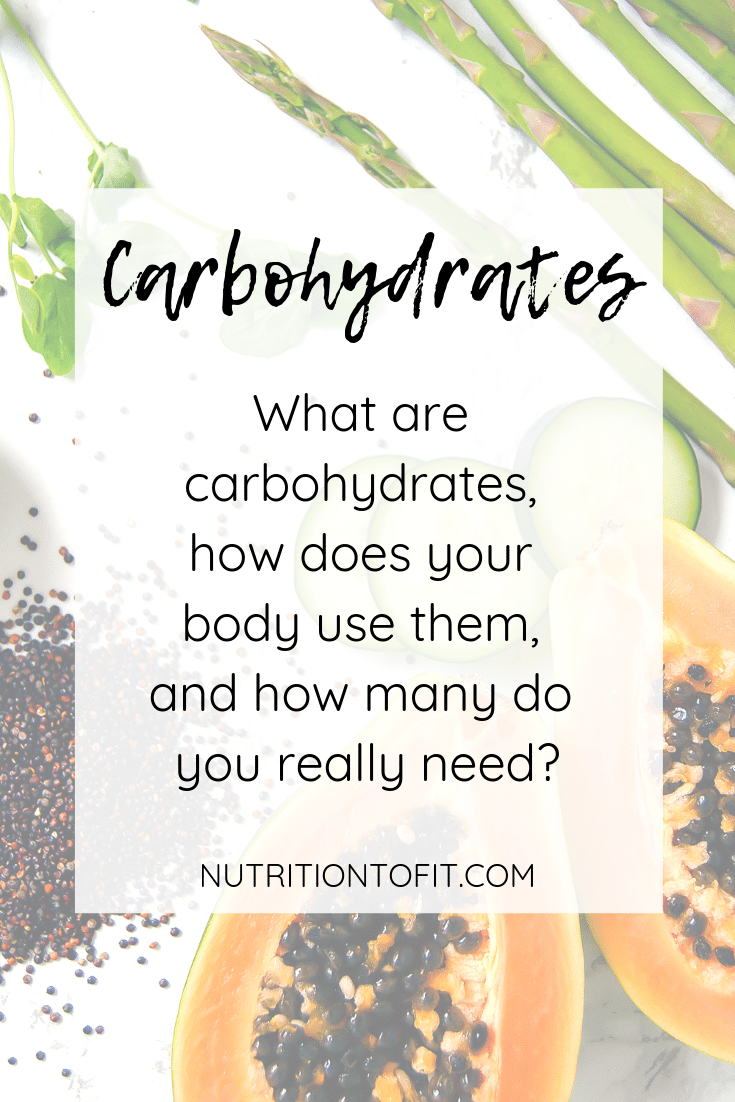Are Eggs Healthy?
Eggs: first they’re bad, then they’re good, now wait – they’re bad again? Are eggs healthy?
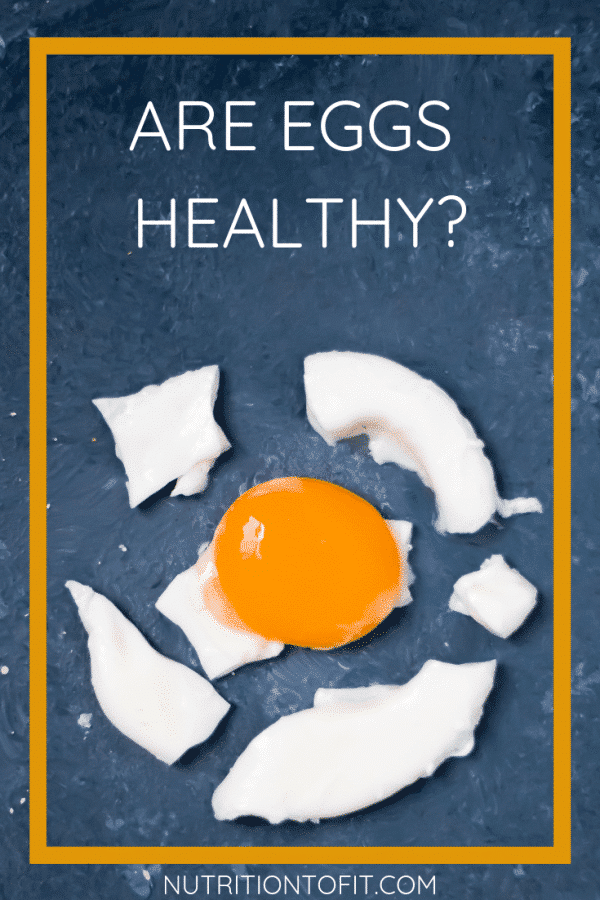
Are Eggs Healthy?
Like many other foods that have come before it, eggs are the latest headliners in the are they/ aren’t they healthy debate. A recent study investigating the associations of dietary cholesterol or egg consumption with cardiovascular disease and mortality came to the conclusion that higher dietary cholesterol or egg consumption was significantly associated with higher risk of cardiovascular disease and death (1). The study authors even went so far as to state, “These results should be considered in the development of dietary guidelines and updates.” The study authors also have said there are absolutely limitations to their study, but we’ll address that in a minute.
Egg Nutrition Facts
I want to start by highlighting some of the nutritional content of eggs. Ultimately, while the “are eggs healthy” debate wages on, eggs undeniably contain a host of nutrients.
One large egg contains (2):
- 78 kcal
- 6.3 g protein
- 5.3 g total fat
- 1.6 g saturated fat
- 2.0 g monounsaturated fat
- 0.7 g polyunsaturated fat
- 187 mg cholesterol
- 0.6 g carbohydrates
- 0 g fiber
- 0.6 g sugar

Vitamins and Minerals in Eggs
While the fat and protein content of eggs are often centric to discussions as to whether or not you should eat eggs, eggs provide a significant amount of vitamins and minerals that help with many bodily functions.
- Vitamin A 293 IU (6% DV*)
- Important for vision, immune system, and reproduction.
- Vitamin D 44 IU
- Aids bone health and the immune system.
- Vitamin E 0.5 mg (3% DV)
- Can benefit skin, heart, and brain health. Vitamin E is also a fat-soluble antioxidant.
- Riboflavin 0.3 mg (15% DV)
- AKA Vitamin B2. Helpful for blood cell health and overall energy.
- Vitamin B6 0.1 mg (3% DV)
- AKA pyridoxine. May benefit skin, brain health, and aid in liver detoxification.
- Folate 22 mcg (5% DV)
- Necessary for DNA synthesis.
- Vitamin B12 0.6 mcg (9% DV)
- AKA cobalamin. B12 improves nerve and blood cell health and aids DNA synthesis.
- Pantothenic Acid 0.7 mcg (7% DV)
- AKA Vitamin B5. Essential in blood cell production and in converting the food you eat into energy.
- Choline 113 mg
- Critical for DNA synthesis, production of a neurotransmitter, and lipid transportation. It’s an important part of metabolism and fetal brain development.
- Betaine 0.3 mg
- May benefit heart health by reducing homocysteine levels in blood.
- Calcium 25 mg (2% DV)
- Known for bone health benefits. May also help protect against cancer, diabetes, and high blood pressure.
- Iron 0.6 mg (3% DV)
- Aids oxygen circulation, improves cognitive function, supports muscles, and may improve the immune system.
- Magnesium 5 mg (1% DV)
- May help improve bone health, heart health, blood glucose regulation, and possibly alleviate anxiety and premenstrual symptoms.
- Phosphorus 63 mg (2% DV)
- Can aid in bone health and digestion.
- Sodium 62 mg (3% DV)
- An electrolyte that is important for muscle contractions, fluid balance, and conducting nerve impulses.
- Zinc 0.5 mg (4% DV)
- Helps your immune system and wound healing.
- Selenium 15.4 mcg (22% DV)
- Important for thyroid health and can help defend against viruses, chronic diseases, and more.
- Fluoride 2.4 mcg
- Associated with dental health.
* All DV (daily value) estimates are based on a 2000 kcal diet.
All of the macronutrients and micronutrients found in eggs can aid in many critical functions performed by and needed by your body daily.
Many of these nutrients are found in the egg yolk. This is why you see many health professionals and egg enthusiasts declaring the whole egg as one of the healthiest foods available. But not everyone feels the same and eggs are not without their controversy.

The Controversy: Cholesterol in Eggs
The primary point of controversy regarding the health benefits of eggs surrounds their cholesterol content.
Cholesterol is actually a nutrient naturally produced by the liver. Cholesterol is essential in metabolic processes, hormone production, and vitamin D production. Many cholesterol benefits come from the “good” cholesterol found in our bodies – high-density lipoprotein (HDL) cholesterol.
The “bad” cholesterol is low-density lipoprotein (LDL) cholesterol, which is the cholesterol most people think of when they think of artery-clogging cholesterol.
The main debate surrounding dietary cholesterol (and thus the virtue of eggs) is whether or not dietary cholesterol intake actually makes a significant impact on our serum (blood) cholesterol levels.
In the most recent 2015 Dietary Guidelines established by the United States Department of Agriculture, dietary cholesterol limits were actually removed. Per their report, they found that the current body of research does not show substantial evidence of an appreciable relationship between dietary cholesterol intake and blood cholesterol levels (3). Even organizations such as the American Heart Association also agree that an egg a day can likely be part of a healthy diet (4).

The Latest JAMA Egg Study Controversy
The reason eggs are currently the center of the “are eggs healthy or not” debate again is because of this new 2019 JAMA study (1). But don’t let alarmist media headlines freak you out. Truthfully, the only clear takeaway from this study is that we should keep studying eggs, cholesterol, and cardiovascular disease.
Yes, if you are relying on media headlines or a quick overview of an article’s abstract, it’s easy to think this study has a lot of weight. Results spanning over 29,000 subjects and nearly two decades on average? Sounds legit, right? Let’s take a deeper look. Here are some breakdowns from the Zhong study:
- This was an observational study. Observational studies DO NOT show causation, only correlations. This means any conclusions drawn are just showing potential associations and not any direct impacts.
- Example illustrating the difference between correlation and causation: in warm weather, there is a correlation between increased murders and increased ice cream sales. Does this mean more ice cream causes more murders? No. There is just a correlation between the two, along with other variables.
- This study was not the gold standard (a randomized controlled study) of research. This study looked at six existing studies (cohorts) and analyzed all the data available from those studies for correlations considered in this study.
- The dietary data assessed in this study is extremely weak. It was based on ONE food frequency questionnaire for the entire study.
- Any self-reported dietary data, especially food frequency questionnaires, are notoriously unreliable.
- A food frequency questionnaire leaves so much room for variability and error amongst subjects.
- Hypothetically, can you say for sure how many eggs you ate last week, last month? Especially when also considering eggs found in other dishes, like casseroles and baked goods? When asked “did you have ice cream last week and how often?” you need to note there is so much variability in answers here. Maybe some ice creams consumed contained egg and others didn’t. Maybe some were non-dairy, plant-based ice creams void of all cholesterol. Maybe someone saying “yes” to having ice cream last week had a small scoop in a bowl and maybe someone else had a full pint topped with whipped cream.
- Each of the six cohorts had their own dietary assessment tool. The Zhong study tried to assimilate each study’s dietary data into one standardized tool of their own.
- Only one food frequency questionnaire was used for the entire duration of the study. Meaning data from subjects being interviewed once on food intake frequency was the basis of dietary correlations for the entire study spanning on average 17.5 years (but over 31 years in total).
- This study attempted to factor in other health and lifestyle factors, like age, sex, race/ ethnicity, smoking, diabetes, alcohol consumption, and BMI. However especially in such a vast observational study like this, it is absolutely impossible to account for all other lifestyle factors, including those that may make a substantial impact on development of cardiovascular disease, like family history/ genetic predisposition.
- Only dietary cholesterol (in the form of eggs) was considered here. Oftentimes higher intake of dietary cholesterol may be associated with higher intake of saturated fat, which can also impact cardiovascular disease development. Other confounding variables like these were not taken into consideration when drawing conclusions – more studies are needed.
- There has been some variability in the reproducibility of these results, both within the United States and outside. So the question also becomes how much cardiovascular disease development risk lies within dietary cholesterol consumption and how much lies within a more western/ Standard American Diet, which may have lower fiber, less physical activity, and more saturated fat, trans fat, and refined carbohydrates?
Overall, this study does give us a little more information but as it stands alone it is nowhere near strong enough data to warrant changing dietary guidelines and recommendations.
Even for individuals, there are so many other lifestyle, personal health, family health history, and other variables to take into consideration before making massive changes to your diet from this one study alone.

Overall Diet & Lifestyle Matter
When considering how many eggs to include in your diet (if at all), it’s important to remember that typically your health doesn’t depend on the inclusion or exclusion of one single food. Your overall diet and lifestyle matter.
What this means is that if you are someone who lives a sedentary lifestyle and consumes a Standard American Diet high in many foods containing cholesterol, saturated fat, and refined carbohydrates (including sugar), and low in fiber, you may want to reconsider the frequency of your egg intake. However if you are more active and consume a more variable, healthy, and plant-inclusive diet, more frequent egg intake may not be as significant a concern for you.
Who May Want to Limit Dietary Cholesterol Intake
Generally, based on overall scientific evidence at this time, dietary cholesterol numerical limits don’t exist, per the 2015 Dietary Guidelines for Americans (3).
The American Heart Association does still say that individuals who have heart disease, diabetes, or are at greater risk for heart disease may want to be more mindful and cautious with their dietary cholesterol intake (4).
Even with potential risk factors like diabetes or prediabetes, the impact of dietary cholesterol on serum cholesterol still may not be as problematic as once thought. One study showed zero increase of cardiovascular risk factors for subjects with diabetes or prediabetes consuming 12 eggs per week for three months (5).

The Bottom Line on Eggs
So, are eggs healthy?
The bottom line on eggs is that they are a nutrient-dense food and absolutely can have a place in a healthy diet.
If you’re concerned about personal risk factors and dietary cholesterol consumption, talk to your healthcare practitioners.
And remember – very rarely are things in life, including the foods we eat, black and white. Meaning there may be some slight risks to consuming eggs and their higher cholesterol content more frequently, but maybe the benefits outweigh those risks for you.
This is where personalized nutrition comes into play and you have to do what works for you. If you’re already a vegan and all of your lab biomarkers are coming back normal and you’re feeling energized and at optimal health, do you need to worry about adding eggs back into your diet? Probably not. If you are sedentary and have been consuming a standard American diet rich in dietary cholesterol, saturated fat, trans fat, refined carbs and poor sleep quality and stress management, should you consider the frequency of your egg consumption? Possibly. If you have an overall healthy, active lifestyle rich in plants and fiber, are whole eggs likely fine as part of your diet? Probably!
In general, if you enjoy and tolerate eggs, moderate consumption will likely be fine and even provide some health benefits.
Nutrition to Fit Egg Recipes
If you want to try or keep some eggs in your diet, try some of these Nutrition to Fit egg recipe favorites:
- Avocado Veggie Egg Salad
- Veggie Egg Cups
- 10 Hard Boiled Egg Recipes
- Prosciutto Egg Cups
- Christmas Breakfast Casserole
- 5-Minute Breakfast Stuffed Sweet Potato
References:
- Zhong VW et al. (2019, March 19.) Associations of Dietary Cholesterol or Egg Consumption with Incident Cardiovascular Disease and Mortality.
- SELF Nutrition Data: Egg Nutrition Facts & Calories.
- United States Department of Agriculture, Dietary Guidelines Advisory Committee. (2015.) Scientific Report of the 2015 Dietary Guidelines Advisory Committee: Advisory Report to the SEcretary of Health and Human Services and the Secretary of Agriculture.
- American Heart Association. (2018, August 16.) Are Eggs Good for You or Not?
- Fuller NR et al. (2018, June 1.) Effect of a high-egg diet on cardiometabolic risk factors in people with type 2 diabetes: the Diabetes and EGG (DIABEGG) Study – randomized weight-loss and follow-up phase.



